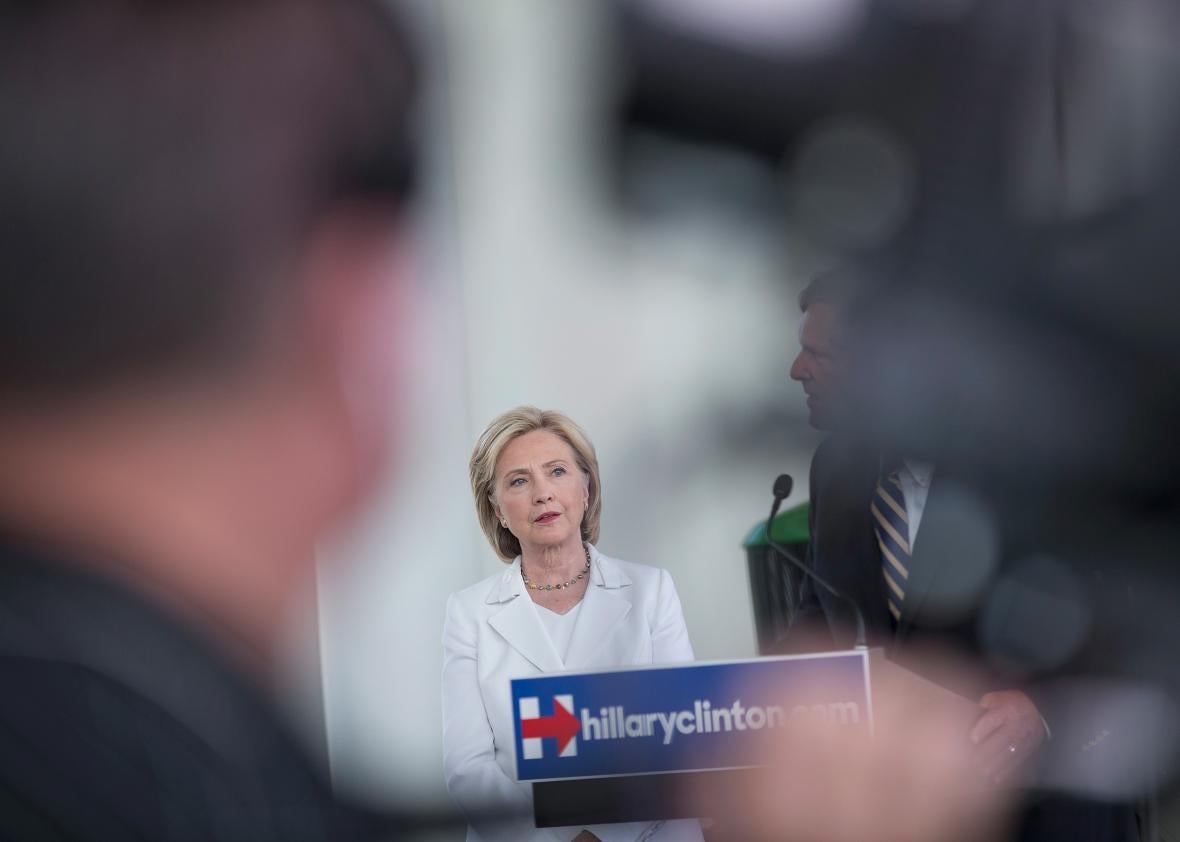Get ready to meet the new and improved new-and-improved Hillary Clinton.
Or at least that’s the message the Clinton campaign recently delivered to the New York Times. In a series of interviews about her campaign’s shifting strategy, the paper reports, Hillary’s advisers “promised that this fall the public would see the sides of Mrs. Clinton that are often obscured by the noise and distractions of modern campaigning.” Gone will be the rope lines that separate her from the public, and her dismissiveness about concerns over her private email use. In their place, the Times reports, will be concerted efforts to showcase Clinton’s “humor” and her “heart,” and “to bring spontaneity to a candidacy that sometimes seems wooden and overly cautious.”
In a world where words have meaning, such a campaign strategy would be nonsensical. You don’t become more authentic by trying to act authentic, and you can’t plan to be spontaneous. If the Hillary Clinton we saw during the 2008 election and during the first five months of this one wasn’t the “real Hillary Clinton,” why would voters believe the next version her campaign presents will be? Why would they believe that any version would be for that matter?
Hillary has been fighting this particular narrative for decades without any luck, and the new game plan sounds an awfully lot like the old one. As Frank Rich put it eight years ago during her last run for the White House: “Clinton campaign’s method for heeding the perennial complaints that its candidate comes across as too calculating and controlled is to periodically toss in a smidgen of what it deems personality.” Clinton launched her 2008 campaign with an invitation to “chat,” and followed it with a series of online “conversations”—appeals to spontaneity that came off as scripted.
Flash-forward to 2015 and it has been more of the same, including her opening “listening tour” that featured a heavily mocked New York-to-Iowa-via-Chipotle road trip. Hillary’s recent efforts to trade on her humor and her heart, meanwhile, have fallen flat. Her attempt to deflect questions about her email server with sarcastic jokes was a disaster. (On Tuesday, she finally apologized for her unusual setup, but only after several days of awkward refusals). Her attempts to play the heartstrings have also been out of tune. (The Times suggests that she’ll no longer mention her granddaughter at every opportunity “given the child’s obvious advantages and privilege.”)
To be fair, the problem of seeming genuine while campaigning is hardly unique to Hillary. Jeb Bush and other GOP establishment candidates haven’t had much luck convincing voters that they’re the real deal, either—particularly during a Summer of Trump where the absurd has become a stand in for the authentic. But for Clinton, it is considered a particularly serious problem given both her biggest official challenger, Bernie Sanders, and her biggest unofficial one, Joe Biden, have had no trouble convincing voters that there’s at least a sliver of person inside the politician.
After years of trying and failing to find their own secret formula, though, Clinton’s camp might want to finally consider that the authentic Hillary they are searching for is the same Hillary they’ve had all along. That Clinton is far from perfect—but she is still leading the race.
